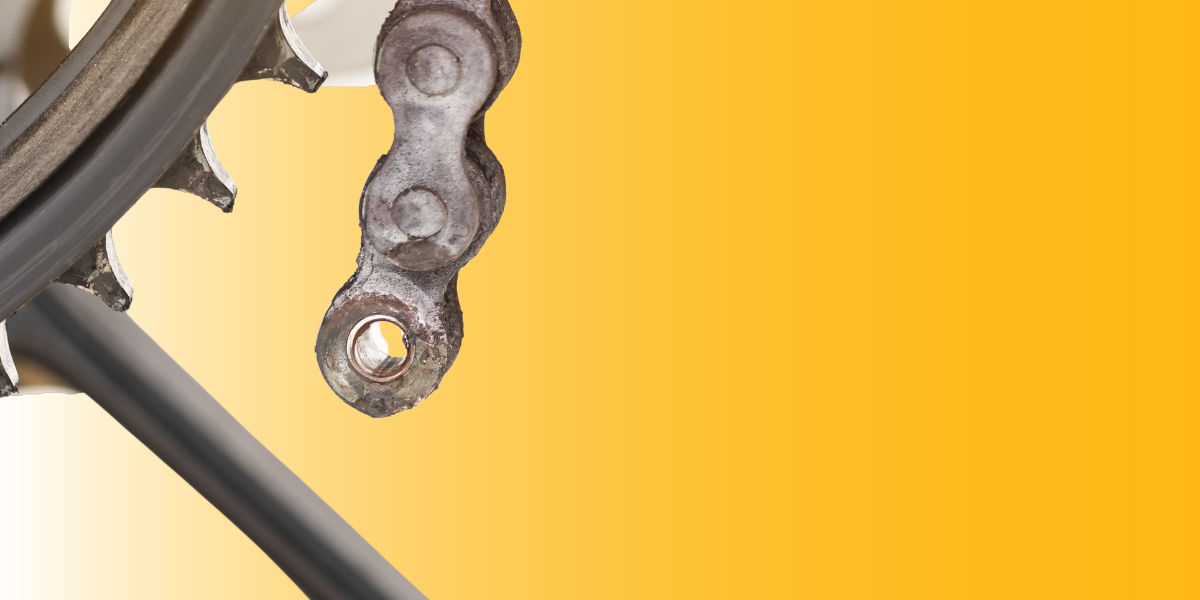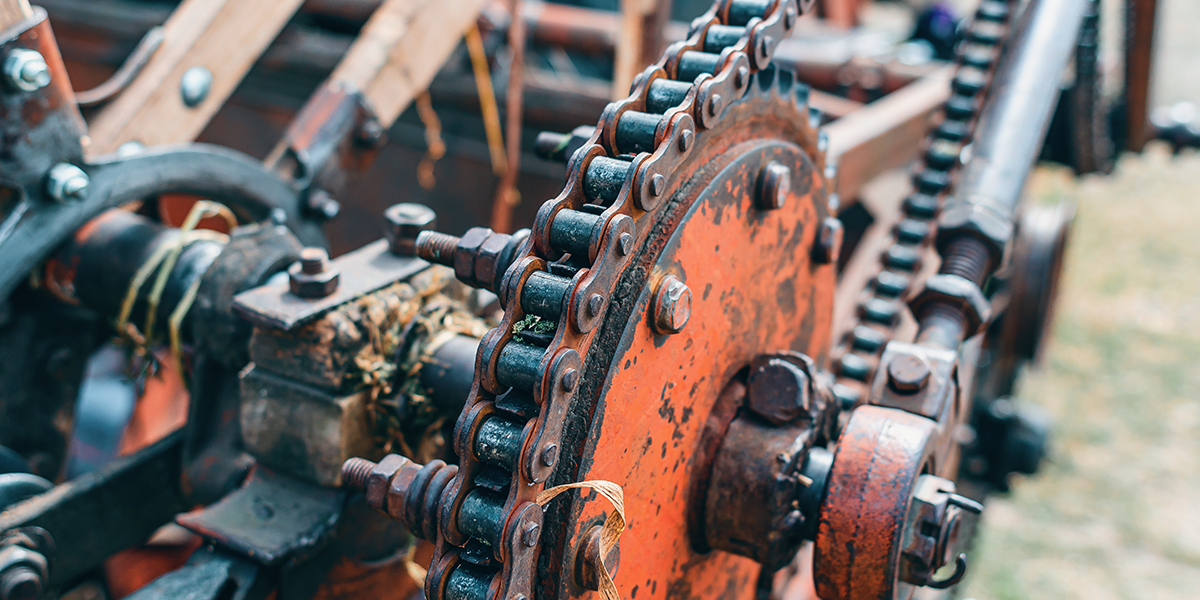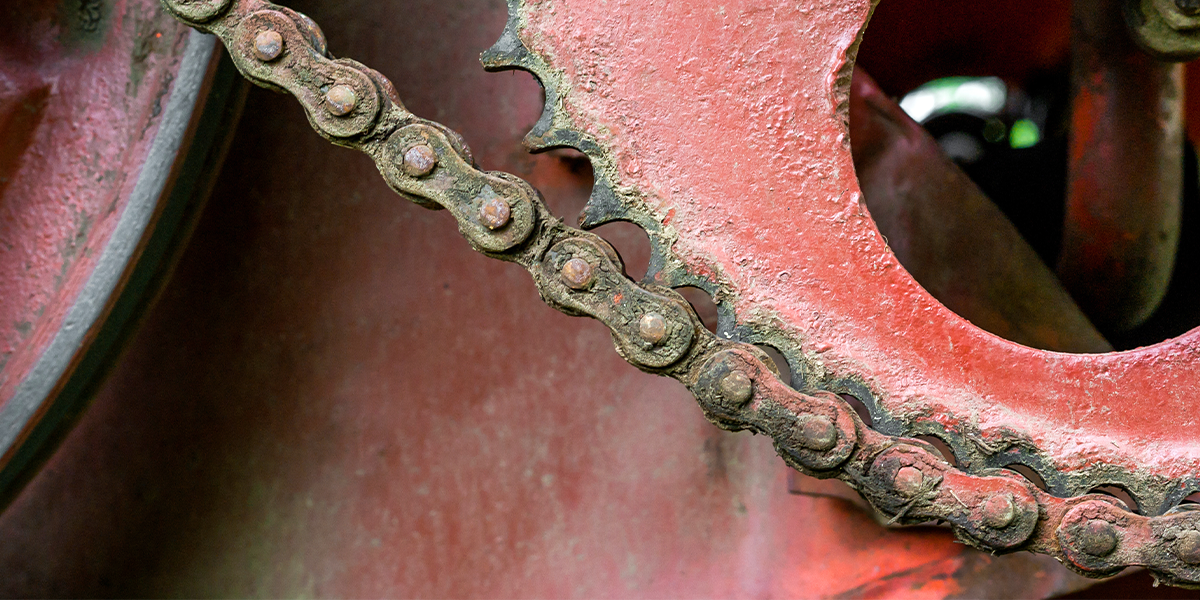
The harsh environments of agriculture operations are not friendly to machine parts and chains. Dirt, hay, and other debris are constantly whirling around and sticking to the wet, greasy parts of the machine.
Tension and stress build up as heavy loads take their toll on the machine. Parts that can easily break due to unfavorable conditions and lack of maintenance are the chains. The main causes of chain failure in agricultural machines are overload, fatigue, and wear.
Let’s dive into what causes chain failure and what you can do to avoid it.
Discussed in this article:

3 Causes of chain failure
1. Overload
Chain overload occurs when the tension strength of a chain is subjected to an excessive one-time pressure that may not have been anticipated. In a normal operation, the chain extends under pressure and returns to its original length when the load is released. A very high load will create tiny pin and plate fractures throughout the chain, leaving it permanently deformed. There is no quick fix to this issue; the only solution is to replace the chain entirely.
2. Fatigue
Fatigue failures happen when repeated cycles with loads beyond the chain’s endurance limit cause the chain to crack over time. Generally, a fatigue crack starts at the point of stress, and grows slowly as the same pressure is continually applied. The crack will extend along the pinch line until the plate breaks. Unlike overload, this stress is not as noticeable, and the operator may not see it.
3. Chain Wear
Chain wear occurs with insufficient lubrication and/or an unfriendly environment. Wear typically takes place in the pins and load bearing areas naturally over time, but certain conditions may cause the process to speed up or seriously damage the equipment. A tight or loose chain and misaligned sprockets increase wear. However, the main cause would be lack of lubrication and debris build up. Dust and sand stick to oil and grease, forming an abrasive paste. This abrasive paste prevents proper seating of the chain. When the chain gets very hot and lubricants are viscous, metal-on-metal contact will cause abrasion - and eventually breakage.

How can you avoid chain failure?
The best way to prevent chain failure is proper lubrication. Lubrication is one of the most important, but often overlooked factors affecting chain life. Not only does it minimize metal-to-metal contact, it also creates a cooling effect at high speeds and carries away dirt and debris, reducing any traumatic abrasion.
The easiest and safest way to lubricate chains on a machine consistently and automatically is with an automatic chain oiler. Investing in an automatic oiler makes chain maintenance easy, painless, and saves the operator time and money in the long run.
LubeMinder® lubrication systems automatically oil and grease, reducing maintenance time and ultimately extending the life of your equipment. Contact us today to learn how we can help prevent chain failure and other common issues.



%20Lubeminder%20Contact%20Button.png?width=1200&height=300&name=(2)%20Lubeminder%20Contact%20Button.png)